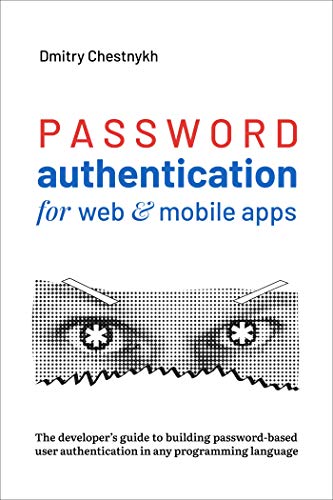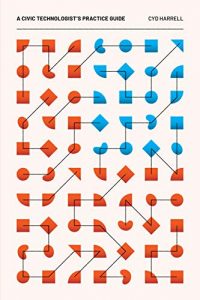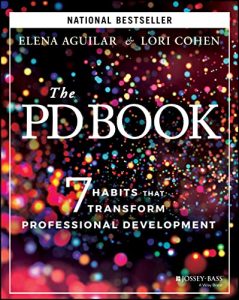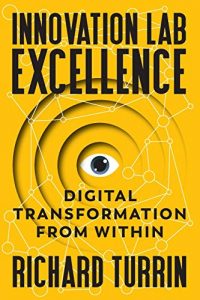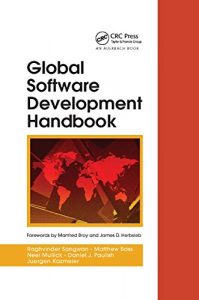Unlocking the Secrets of User Authentication: Essential Reads for Developers
User authentication is a crucial aspect of web and mobile application development, ensuring that user data remains secure and accessible only to authorized personnel. Here’s a selection of must-read books that delve into the intricacies of user authentication, providing developers with the tools and knowledge they need to implement robust security protocols.
Password Authentication for Web and Mobile Apps: The Developer’s Guide To Building Secure User Authentication
Written by Dmitry Chestnykh, this book is an indispensable resource for developers looking to understand password authentication deeply. The author combines practical examples with theoretical insights to create a comprehensive guide that is accessible and informative. It covers various authentication methods, security practices, and how to build secure user models. Developers will appreciate the clarity with which complex topics are presented, making it easier to implement strong authentication systems in their own applications.
Biometric User Authentication for IT Security: From Fundamentals to Handwriting
Claus Vielhauer’s work is a riveting exploration of biometric security measures which are becoming increasingly vital in the age of digital information. This book articulates the science behind biometrics, showcasing various methods, such as fingerprint and handwriting recognition. It also discusses the ethical implications and security challenges of deploying biometric systems. For IT security professionals, understanding the fundamentals of biometric authentication is critical, and this book lays out the essential knowledge required to navigate this sophisticated domain effectively.
User Authentication and Authorization Third Edition
Gerardus Blokdyk’s third edition of this informative book is a real gem for anyone wanting to refine their understanding of user authentication and authorization. This edition updates the existing material with contemporary practices and strategies vital for modern developers. It elucidates various frameworks and tools available for authentication, making it easier for readers to choose what best meets their needs. The practical tips and detailed explorations of user roles and permissions elevate this book to a must-read status for developers keen on enhancing their security frameworks.
Transparent User Authentication
Authored by Clarke, this book introduces readers to the cutting-edge concept of transparent user authentication, which aims to provide seamless and non-intrusive user experiences. It emphasizes enhancing user satisfaction while maintaining security, a balance that many developers struggle to achieve. The author discusses innovative techniques and approaches that lead to effective yet convenient user authentication processes. Those keen on improving user experience without compromising security will find valuable insights throughout the pages of this book.
A Cascaded Toolkit for User Authentication
Ramkrishna Das’s “A Cascaded Toolkit for User Authentication” presents a unique view on authentication frameworks. It brings together various techniques into a streamlined toolkit, enabling developers to customize user authentication setups efficiently. This book is especially beneficial for those looking to implement adaptive authentication mechanisms. The hands-on approach and toolkit integration offered are commendable; readers will find guidance tailored to modern needs, enhancing their ability to configure robust authentication systems.
Windows Security Internals: A Deep Dive into Windows Authentication, Authorization, and Auditing
James Forshaw provides a comprehensive look into Windows security, giving developers insights into the complex mechanisms underpinning Windows authentication and authorization. Understanding these realms is vital for any developer working within the Microsoft ecosystem. This book doesn’t just present facts; it provides an analytical viewpoint on security audits and ensures that developers grasp not only how to apply security measures but why they are necessary. This depth of understanding equips developers to make better security decisions in their software solutions.
Pro ASP.NET Core Identity: Under the Hood with Authentication and Authorization in ASP.NET Core 5 and 6 Applications
Freeman’s “Pro ASP.NET Core Identity” is an essential guide for developers working in the ASP.NET ecosystem. It dives into the intricacies of the ASP.NET Core identity system, pulling back the layers to reveal how authentication and authorization work within these modern applications. The clarity and detail offered in this book will empower developers to create more robust and secure applications using the latest ASP.NET features. It’s a great resource for both novice and experienced developers alike.
Behavioral Analysis for User Authentication
This collaborative work by Mrs. Bhumika Raipure and Dr. Gavaskar P centers on innovative behavioral analysis techniques for user authentication. In an age where traditional methods can be easily bypassed, techniques that analyze user behavior can add multiple layers of security. The book discusses real-world applications of these concepts, making it a must-read for security professionals aiming to explore advanced authentication methodologies that keep pace with evolving threats.
Cognito User Pool: Investigating Authentication Issues
Emily Irvine’s “Cognito User Pool” offers a practical guide to the authentication issues that arise with AWS Cognito. This fast-evolving area of technology necessitates regular updates and adjustments to maintain secure and efficient authentication processes. The book is instrumental for developers who are implementing Cognito in their applications, as it outlines common pitfalls and solutions that real-world developers face. The insights provided here are invaluable for anyone serious about mastering AWS user authentication.
User Authentication Systems and Role-based Security
This book by an unknown author addresses the fundamental concepts behind user authentication systems and their role-based security implementations. Despite the lack of an identifiable author, the contents provide substantial insights into how user authentication can be structured in versatile applications. This work serves as a foundational text for anyone new to the domain of security and provides the basic principles needed to understand and implement user-based security measures effectively.
These books collectively provide a comprehensive overview of user authentication, suitable for developers of all levels. By exploring these resources, you will deepen your understanding of security measures essential in today’s software development landscape.

